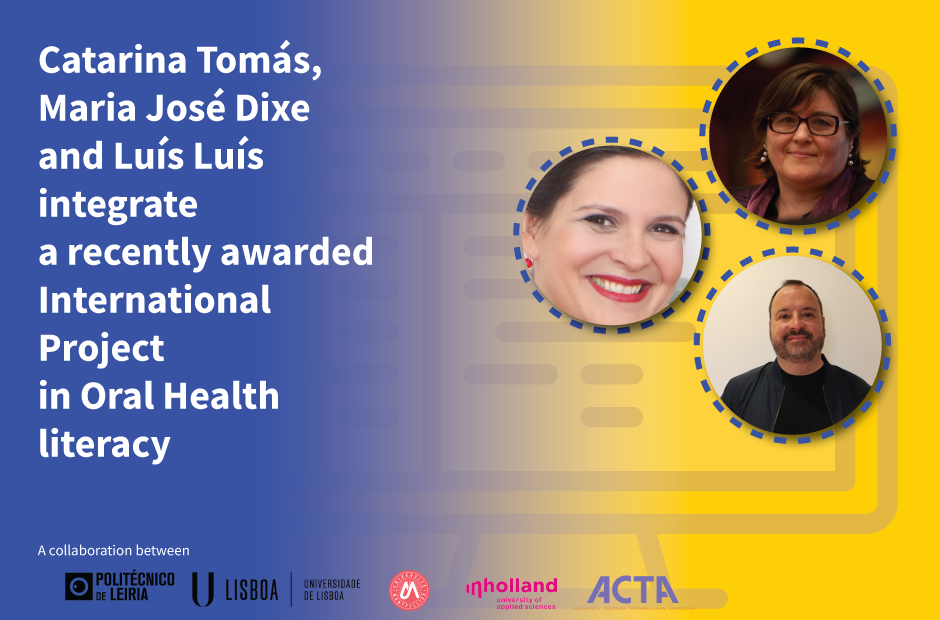
Accessing to oral health services is not an easy process, specially for vulnerable patient groups, such as frail older people, people with severe mental illness, and people with an intellectual disability.
Also, research shows that oral care professionals, nursing professionals and social work professionals are lacking the knowledge and skills needed to ensure good oral care for this patient groups.
In order to contribute to a better and easier access to oral health services in this specific population, an international collaboration was created between ACTA (Academic Center for Dentistry Amsterdam) and Inholland University of Applied Sciences, both universities from the Netherlands, University of Montpellier, in France, Lisbon University and Polytechnic of Leiria.
Luís Soares Luís, Maria do Anjos Dixe and Catarina Tomás, ciTechCare researchers, represent Polytechnic of Leiria (IPL) in this Oral Health Cooperation Partnership project whose aim is to promote oral health literacy in this vulnerable target audience.
In this project, nursing, social work and dentistry students will be working in an interdisciplinary methodology in order to develop online learning modules, which will be available later so that these professionals will be able to identify, recognize and prevent some oral health problems in those vulnerable people.
This two years project, starting at the end of may, will result in three interprofessional educational modules: one for nursing and social work students on oral care (2 ECTS), another for dental students how to understand, act and communicate with vulnerable patient groups (2 ECTS) and a third one for dental, nursing, and social work students: effective interprofessional collaboration in providing care to promote oral health of vulnerable patient groups (4 ECTS).
At the end of the project it is supposed to include those online interprofessional educational courses within the curricula of European higher educational institutions. Also, it is expected those modules improve knowledge, skills, and attitude of dental, nursing, and social work students and also of other health care professionals and family carers.
